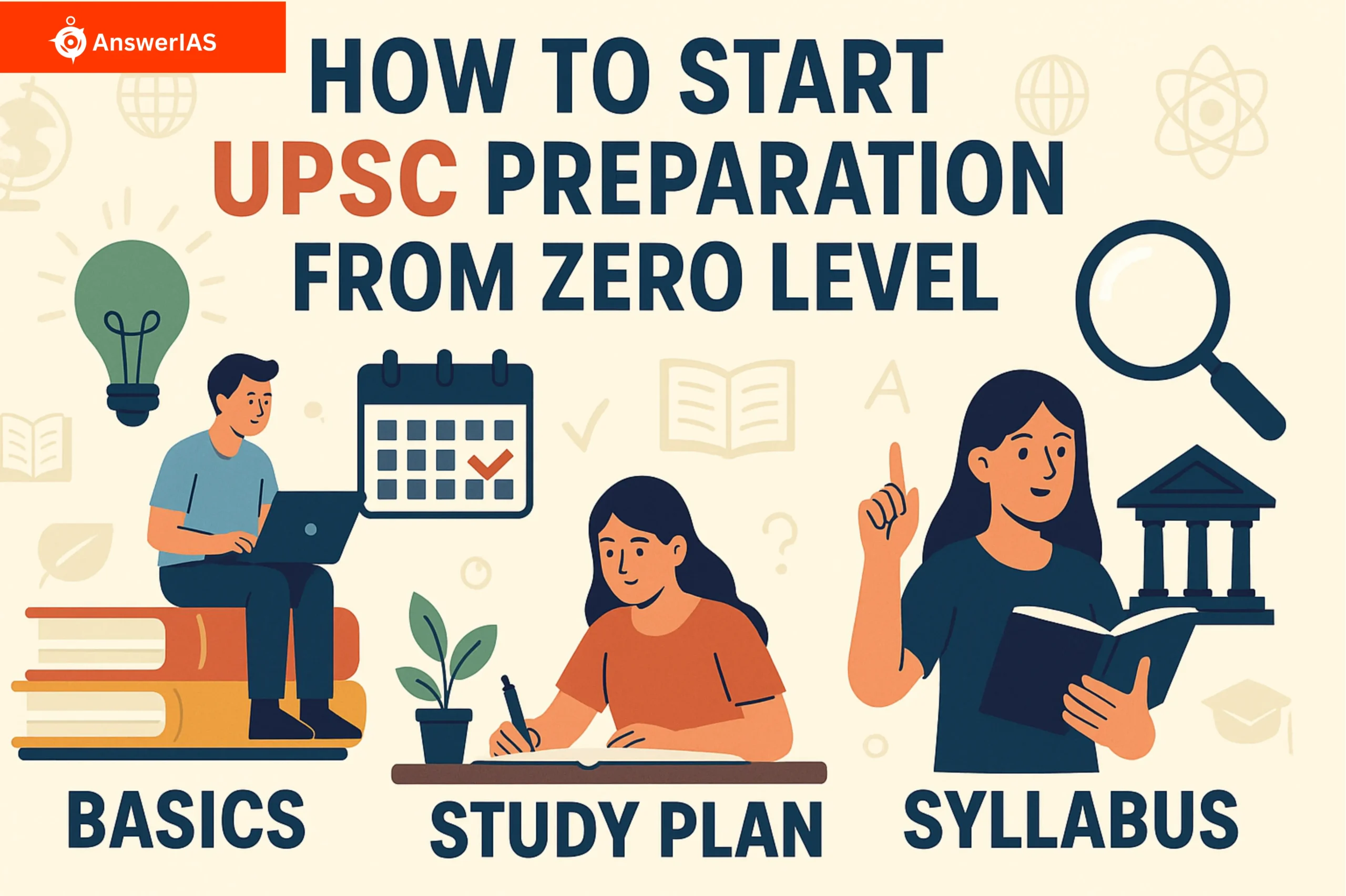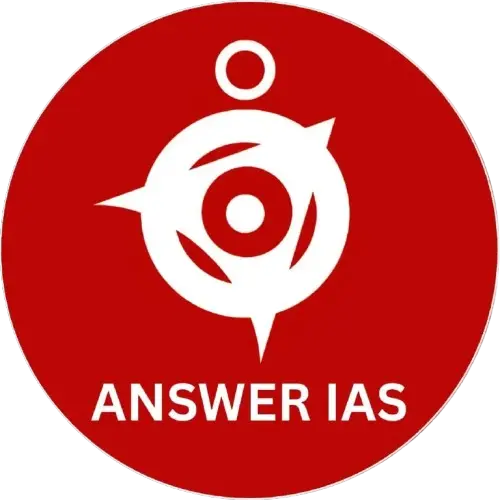
The Union Public Service Commission (UPSC) Civil Services Exam (CSE), commonly known as the IAS exam, is one of India’s most prestigious and competitive examinations conducted by the Government of India.
For aspirants starting their UPSC preparation from zero level, the journey can seem overwhelming due to the vast UPSC syllabus and rigorous UPSC exam pattern. However, with a strategic, phased approach, dedication, and the right preparation strategy, beginners can build a strong foundation and work toward success.
This comprehensive guide integrates essential tips to help you kickstart your UPSC CSE preparation from scratch, enriched with insights from expert resources.
Understanding the UPSC Civil Services Exam (CSE)
To embark on your UPSC preparation, it’s crucial to first understand the structure, stages, and demands of the UPSC Civil Services Exam. Familiarizing yourself with the UPSC exam pattern, UPSC mains syllabus, and prelims exam requirements sets the foundation for an effective preparation strategy.
Exam Structure
The UPSC CSE follows a three-stage selection process:
- Preliminary Examination (Prelims Exam):A screening test with two objective-type papers: General Studies (GS) Paper-I and Civil Services Aptitude Test (CSAT) Paper-II.
- GS Paper-I covers subjects like History, Geography, Indian Polity, Economy, Environment, Current Affairs, and General Science. Only its marks count toward qualifying for the UPSC Mains, provided you score the minimum qualifying marks in CSAT, which is qualifying in nature.
- The prelims exam includes negative marking, so understanding the marking scheme is critical.
- Main Examination (UPSC Mains):A written exam comprising nine papers: two qualifying papers (English and one Indian language, e.g., Hindi, Tamil), an Essay paper, four General Studies papers (GS I-IV), and two optional subject papers.
- GS papers cover diverse topics like Indian Heritage, Governance, International Relations, Ethics, Technology, Economic Development, Environment, and Security.
- Personality Test (Interview):Candidates who clear the UPSC Mains are shortlisted for the Personality Test, assessing communication skills, leadership qualities, ethical values, and suitability for civil services.
Syllabus Analysis
The UPSC syllabus is vast but well-defined. For beginners, thoroughly study the UPSC mains syllabus and prelims syllabus to identify key subjects and prioritize areas requiring focused effort. Analyze your strengths and weaknesses to start with challenging topics, such as Indian Polity or Economics, to build confidence early.
Exam Pattern and Marking Scheme
Understand the number of questions, time duration, and negative marking in the prelims exam. For UPSC Mains, focus on the structure of GS papers, Essay, and optional subjects. Knowing the exam date and preparing a timeline ensures you cover the syllabus systematically.
Building Foundational Knowledge with NCERT Books
For aspirants starting from zero, NCERT books are the cornerstone of UPSC preparation. These textbooks, spanning Classes 6 to 12, provide a clear, concise, and reliable foundation for core subjects.
- Core Subject Foundation: NCERT books cover History, Geography, Indian Polity, Economics, Environment, and General Science, aligning perfectly with the UPSC syllabus. They simplify complex concepts, making them ideal for beginners.
- Sequential Learning: Start with lower-grade NCERTs (Class 6–8) to grasp basics, then progress to higher grades (Class 9–12) for advanced topics. This step-by-step approach ensures clarity.
- Relevance to Exam: NCERT content is frequently tested in both prelims exam and UPSC Mains, especially for foundational questions in History, Polity, and Geography.
Begin with NCERT books to build a robust conceptual base before moving to advanced study materials like M. Laxmikanth’s Indian Polity or Spectrum’s A Brief History of Modern India.
Crafting a Strategic Study Plan
A well-structured study plan is essential for covering the vast UPSC syllabus efficiently and staying disciplined.
- Syllabus-Based Planning: Break the UPSC syllabus into manageable topics. Allocate specific time slots for subjects like History, Polity, and Current Affairs, ensuring balanced coverage.
- Setting Goals: Set realistic daily, weekly, and monthly targets. Track progress to stay motivated and adjust focus to weaker areas.
- Integrating Subjects: Balance static subjects (e.g., History, Polity) with dynamic current affairs. Dedicate time daily to read newspapers like The Hindu or The Indian Express.
- Revision Schedule: Incorporate regular revision sessions to reinforce concepts and improve retention, a critical aspect of exam preparation.
- Flexibility: Adapt your study plan based on your learning pace and evolving needs, especially as the exam date approaches.
A disciplined study plan ensures comprehensive coverage and keeps you on track for the IAS exam.
Resource Selection and Optional Subject Choice
Choosing the right study materials and optional subject significantly impacts your UPSC preparation efficiency.
- Standard Reference Books: After mastering NCERT books, refer to advanced resources like:Indian Polity by M. Laxmikanth for Polity.
- A Brief History of Modern India by Spectrum for History.
- Indian Economy by Ramesh Singh for Economics.
- Current Affairs: Read reputable newspapers (The Hindu, The Indian Express, Economic Times) daily for national and international news. Supplement with magazines like Yojana and Kurukshetra for in-depth analysis of social, economic, and political issues.
- Optional Subject Selection: Choose an optional subject based on interest, academic background, syllabus overlap with GS papers, and availability of study materials. Popular choices include Public Administration, Sociology, and Geography. Seek guidance from mentors to make an informed decision.
- Coaching Material (Optional): Joining a reputable coaching institute can provide structured guidance, study materials, and mock tests. For zero-level aspirants, coaching helps navigate the vast syllabus and avoid confusion.
Developing Essential Skills for Success
Beyond knowledge acquisition, developing key skills is critical for excelling in the UPSC Civil Services Exam.
- Effective Note-Making: Create concise, organized notes for each subject to facilitate quick revision. Summarize key points from NCERT books, newspapers, and reference materials.
- Answer Writing Practice: Regular practice with previous year question papers hones answer writing skills, crucial for UPSC Mains. Structure answers with a clear introduction, body, and conclusion, focusing on clarity and relevance.
- Mock Test Series: Enroll in test series for prelims exam and UPSC Mains to simulate exam conditions, improve time management, and identify weak areas. Analyzing test results helps refine your preparation strategy.
- Critical Analysis: Develop the ability to analyze issues from multiple perspectives, especially for GS papers and the Essay paper. Reading editorials and opinion pieces in newspapers enhances this skill.
- Practicing Previous Year Papers: Solving previous year question papers familiarizes you with the UPSC exam pattern, improves time management, and boosts confidence.
Staying Updated with Current Affairs
Current affairs are integral to both prelims exam and UPSC Mains. A disciplined approach to staying updated is essential.
- Newspapers: Read The Hindu or The Indian Express daily, focusing on national and international news, editorials, and opinion pieces. These provide insights into India’s foreign policy, governance, and socio-economic issues.
- Magazines and Online Sources: Refer to Yojana, Kurukshetra, and reliable online platforms for in-depth coverage of current affairs.
- Balanced Approach: Ensure your reading includes both national and global events to address questions on international relations and national security.
Maintaining Mindset and Well-Being
The UPSC CSE journey is a marathon requiring sustained effort, resilience, and a positive mindset.
- Consistency: Regular, disciplined study is more effective than sporadic efforts. Stick to your study plan to cover the syllabus comprehensively.
- Patience and Perseverance: Setbacks are part of the process. Stay patient and learn from mistakes to improve continuously.
- Positive Attitude: Avoid comparing yourself with others. Focus on your progress and believe in your potential to succeed in the IAS exam.
- Health Management: Prioritize physical and mental well-being with adequate sleep, a balanced diet, and light exercise to prevent burnout.
Relevance to Prelims, Mains, and Interview
A structured preparation strategy contributes to success across all stages of the UPSC Civil Services Exam:
- Prelims Exam: A strong foundation from NCERT books, regular current affairs updates, and practice with previous year question papers ensure success in GS Paper-I and CSAT.
- UPSC Mains: In-depth knowledge, analytical skills, and answer writing practice are critical for GS papers, Essay, and optional subjects. A well-rounded understanding of current affairs enhances performance.
- Personality Test: The holistic knowledge, clarity of thought, and articulate expression developed during preparation are key to excelling in the Interview.
Conclusion
Starting UPSC preparation from zero level may seem daunting, but with determination, discipline, and a systematic approach, you can achieve your dream of becoming a civil servant.
By understanding the UPSC exam pattern, mastering NCERT books, crafting a strategic study plan, choosing the right optional subject, and developing essential skills like answer writing and critical analysis, you lay a strong foundation for success.
Stay motivated, embrace challenges, and maintain consistency throughout your exam preparation. With continuous learning and adaptability, you can excel in the UPSC Civil Services Exam and embark on a transformative journey toward a rewarding career in public service.
Good luck on your UPSC CSE journey!

Leave a Reply